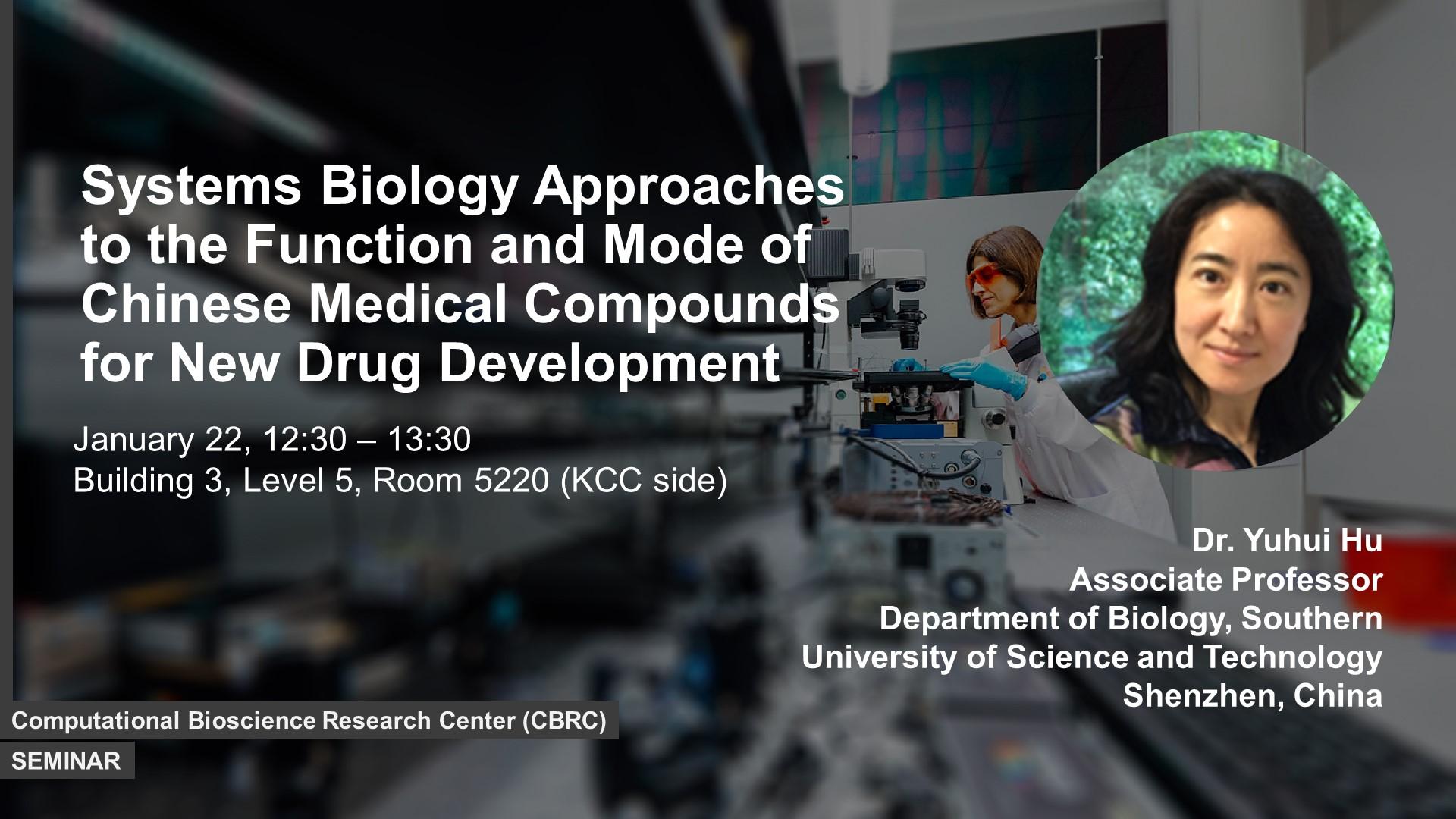Abstract
Traditional Chinese Medicine (TCM) has a long history of usage with approved clinic efficacy, albeit the underlying substances and functional mechanisms are largely unknown. Here, we applied multiple systems biology tools on TCM-derived compounds aiming to: 1) elucidate the molecular mechanism of TCM functions; 2) identify the compounds with novel efficacy as potential drug hits. We firstly established a transcriptome-based network "MecoTCM", in which gene expression, cellular pathways, disease status, TCM compounds & existing drugs are systematically connected, and thus generating insight into the function and mechanism of TCM compounds.
In the case of Ginseng, the most-widely used tonic herbal medicine, we revealed the estrogenic effect for both triol- and diol-class of ginsenosides (a class of triterpene glycosides), whereas a potent anti-cancer effect for ginsenoside metabolites when the sugar moieties were hydrolyzed. Combing gene expression profiling and ChIP-seq (Chromatin immunoprecipitation sequencing), we for the first time demonstrated the 'genomic regulatory effect' of ginsenosides, which was so far overlooked in all the previous studies.
Brief Biography
Yuhui Hu got her Ph.D. at Max-Planck-Institute for Molecular Genetics (MPIMG), Berlin, Germany in 2006, followed by another year of postdoc stay. Since 2007, she led her own research group on pharmacogenomics & chemical genetics in the same institute and moved in 2009 to the newly founded Berlin Institute for Medical Systems Biology (BIMSB), Max Delbrück Center for Molecular Medicine (MDC), Berlin. Since August 2016, she was recruited as an independent PI (associate professor) by the Southern University of Science and Technology, Shenzhen, China.
Dr. Yuhui Hu has a long-standing interest and experience in Functional Genomics, Chemical Biology, and Traditional Chinese Medicine (TCM). She has a particular interest in combining her expertise in both systems biology (genomics, metabolomics, proteomics) and TCM theories for the research-driven development of new drugs that are originated from TCM natural compounds. She has for the first time established a series of high-throughput platforms, such as Connectivity Map of TCM, for studying the functional mechanism of TCM systematically, and in the meantime allowing for efficient assessment of therapeutic efficacies of TCM-derived new drug candidates. The research achievement includes, for example, the first report on the genome-wide gene regulatory effects of Ginsenosides. She has identified a few TCM compounds with potent anti-cancer and neural protection effects and is currently applying these into targeted cancer therapy (Precision Medicine).
